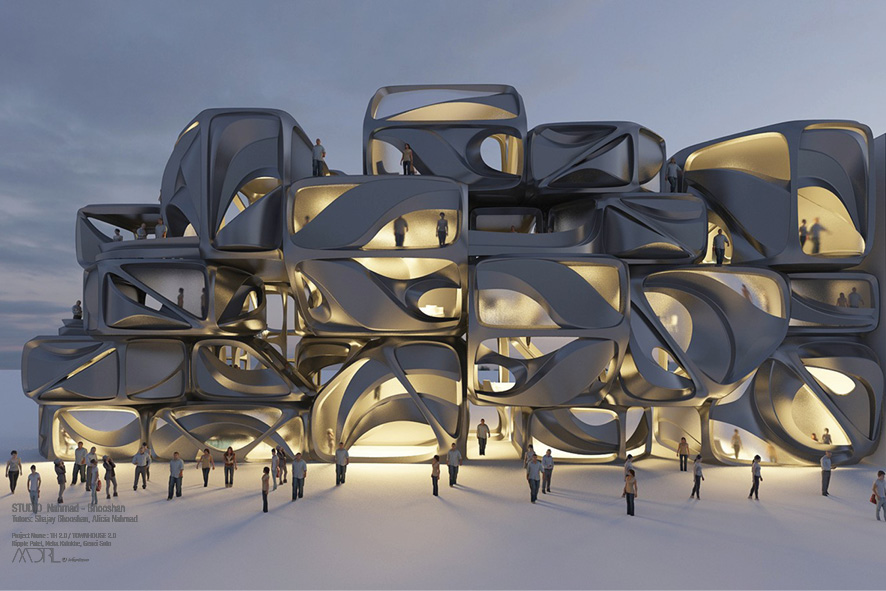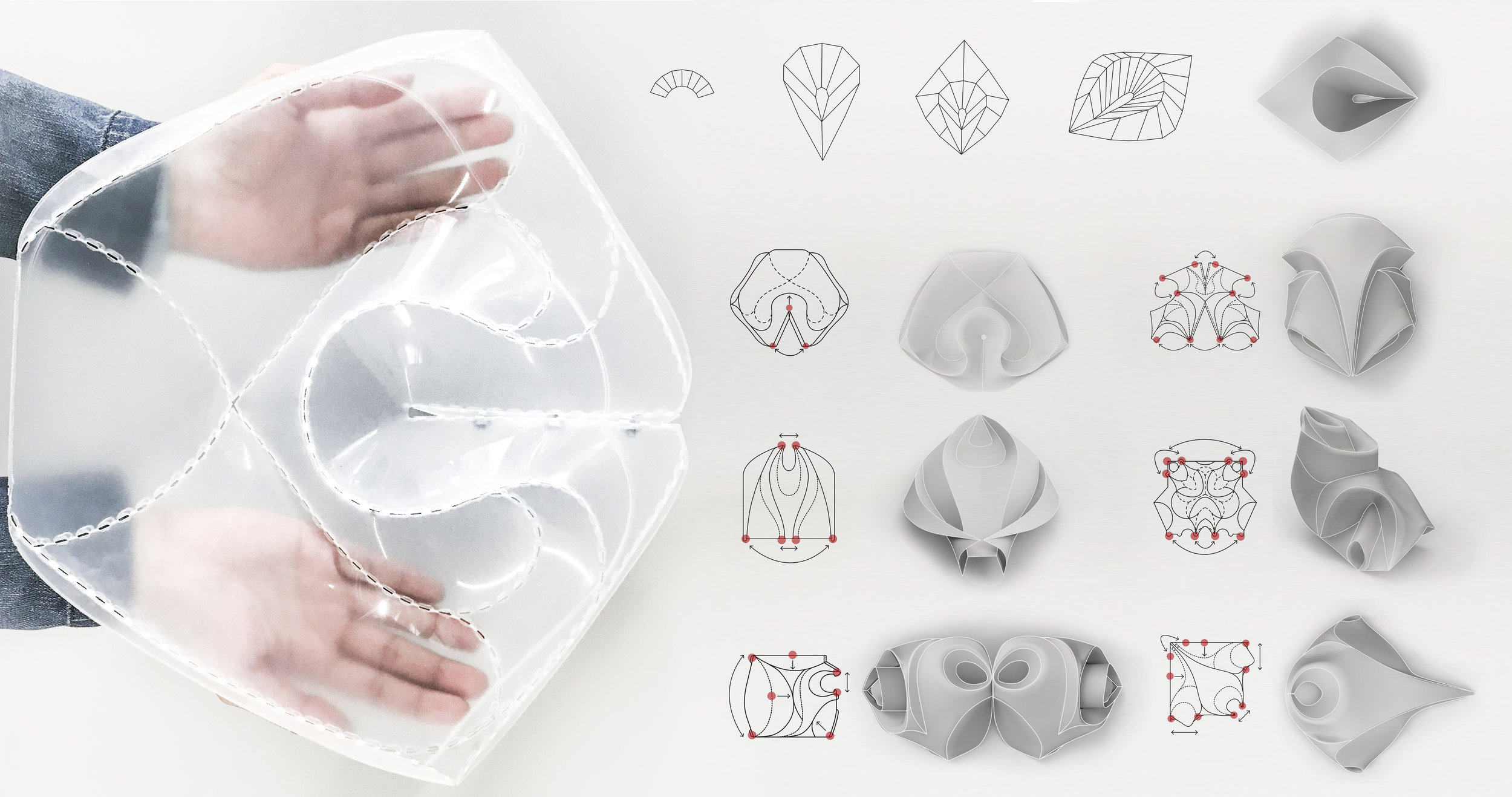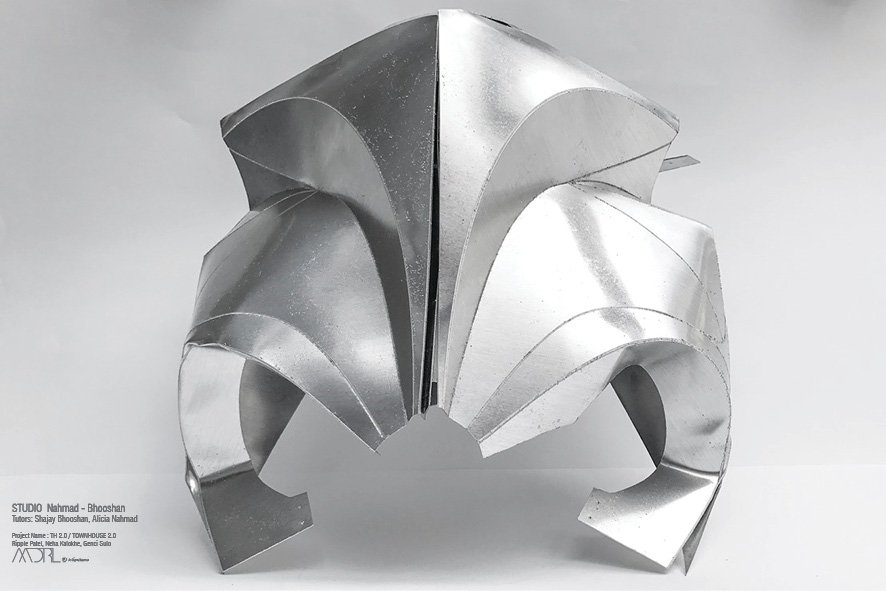Constructing agency 2016-2018
TH 2.0 / TOWNHOUSE 2.0
Studio Shajay Bhooshan
Tutors Alicia Nahmad Vasquez
Team Ripple Patel (India), Neha Kalokhe (India), Genci Sulo (Albania)
In a world of rapid and changing needs of people, mass production is progressively
trying to adapt to the market’s demands in almost every field. Standardized products are
continuously being replaced by highly personalized products that by adapting the final
outputs reflect the individual requirements.
The proposal aims to provide personalized housing responding to the unique
preferences of the users. It will provide users the opportunity to order their house online
and to build their community that they want to be part of. The online platform would
enable them to choose from different gradients of privacy and social exchange and also,
to select and to be informed about their future neighbors.
The research is exploring an innovative form of customized and individually
personalized shared living that has as its priority the community. The proposed
architectural model aims to provide shared living spaces for working people near
traditional working areas in London.
Historically, townhouses were terraced houses used during weekends and temporary
during the year by families living in country houses. Nowadays, people live in peripheral
parts of the city and commute for long time daily to their workplaces. The version 2.0
aims to reinterpret the traditional townhouse which combined with concepts of co-living,
can be the place to live not only temporary.
In parallel, the research seeks to investigate and incorporate novel architectural
geometries and fabrication methods for delivering mass customization. The emerging
field of curve folding is explored for delivering time changing, prefabricated living units in
response to the changing needs of its communities. The contribution to the architectural
discourse is the new way of creating possible livable spaces through intricate shapes
deriving from folding single flat sheets. By investigating curve folding and its digital
fabrication possibilities, the proposals envision its potential application to larger
architectural scale.
















